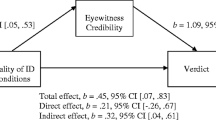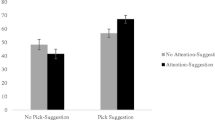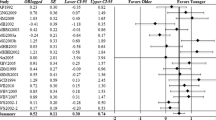Abstract
This study investigated the influence of an authority figure on eyewitness identification. Participants watched a staged crime and then were administered a photo lineup by either an authority (policeman) or non-authority figure (civilian). Participants in the authority condition were more likely to choose a lineup member than those in the non-authority condition. There was no effect of authority, however, on the accuracy of the identification decisions. The lack of a deleterious effect suggests that the presence of a police officer during identification procedures does not create an unduly suggestive situation or have undesirable effects on eyewitness identification decisions. Although witnesses' choosing behaviors did not increase the rate of identification errors, the effect of the administrator's authority on choosing was reduced when unbiased instructions (vs. biased instructions) were presented to the witnesses. Thus, support was found for the use of neutral instructions during eyewitness identification procedures.
Similar content being viewed by others
References
Bickman, L. (1974). The social power of a uniform.Journal of Applied Social Psychology, 4, 47–61.
Brigham, J. C., Van Verst, M., & Bothwell, R. K. (1986) Accuracy of children's eyewitness identifications in a field setting.Basic and Applied Social Psychology 7, 295–306.
Bushman, B.J. (1988). The effects of apparel on compliance: A field experiment with a fernale authority figure.Personality and Social Psychology Bulletin, 14, 459–467.
Coll, R. (1986). Power, powerlessness and empowerment.Religious-Education, 81, 412–423.
Cutler, B. L., & Penrod, S. D. (1995).Mistaken Identifications: The Eyewitness, Psychology and the Law. New York, New York: Cambridge University Press.
Cutler, B. L., Penrod, S. D., & Martens, T. K. (1990). The reliability of eyewitness identification: The role of system and estimator variables.Law and Human Behavior, 11, 233–258.
Luus, C. A., & Wells, G. L. (1994). The malleability of eyewitness confidence: Co-witness and perseverance effects.Journal of Applied Psychology, 79, 714–723.
Malpass, R. S., & Devine, P. G. (1984). Research on suggestion in lineups and photospreads. In G. L. Wells & E. F. Loftus (Eds),Eyewitness Testimony (pp. 64–91). New York: Cambridge University Press.
Milgram, S. (1964). Some conditions of obedience and disobedience to authority.Human Relations, 18, 57–76.
Sigelman, C. K., & Sigelman, L. (1976). Authority and conformity: Violation of a traffic regulation.The Journal of Social Psychology, 100, 35–43.
Yuille, J. C., & Wells, G. (1991). Concerns about the application of research findings: The issue of ecological validity. In J. L. Doris (Ed.),The suggestibility of children's recollections (pp. 118–128). Washington, D.C.: American Psychological Association.
Author information
Authors and Affiliations
Rights and permissions
About this article
Cite this article
Devenport, J.L., Fisher, R.P. The effect of authority and social influence on eyewitness suggestibility and person recognition. JPCP 11, 35–40 (1996). https://doi.org/10.1007/BF02803685
Issue Date:
DOI: https://doi.org/10.1007/BF02803685




